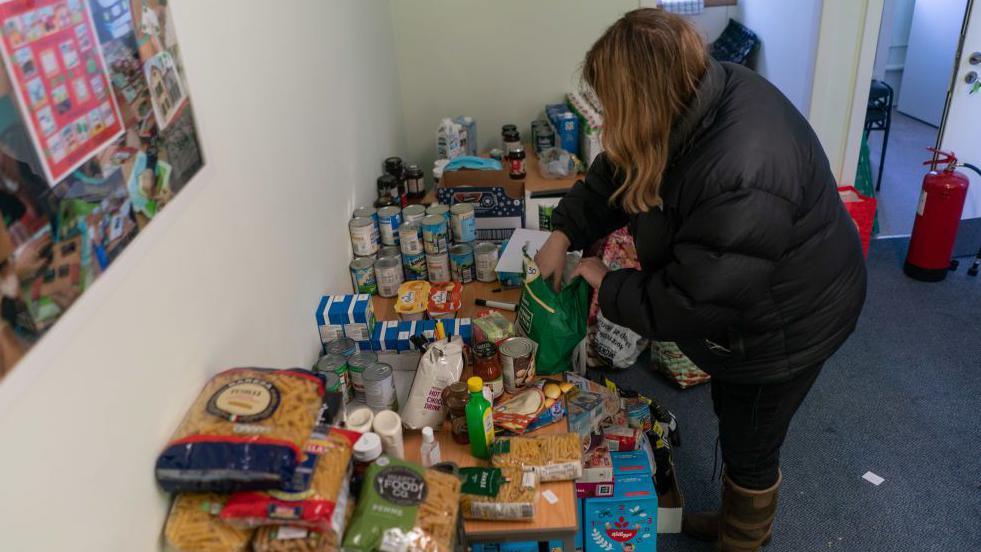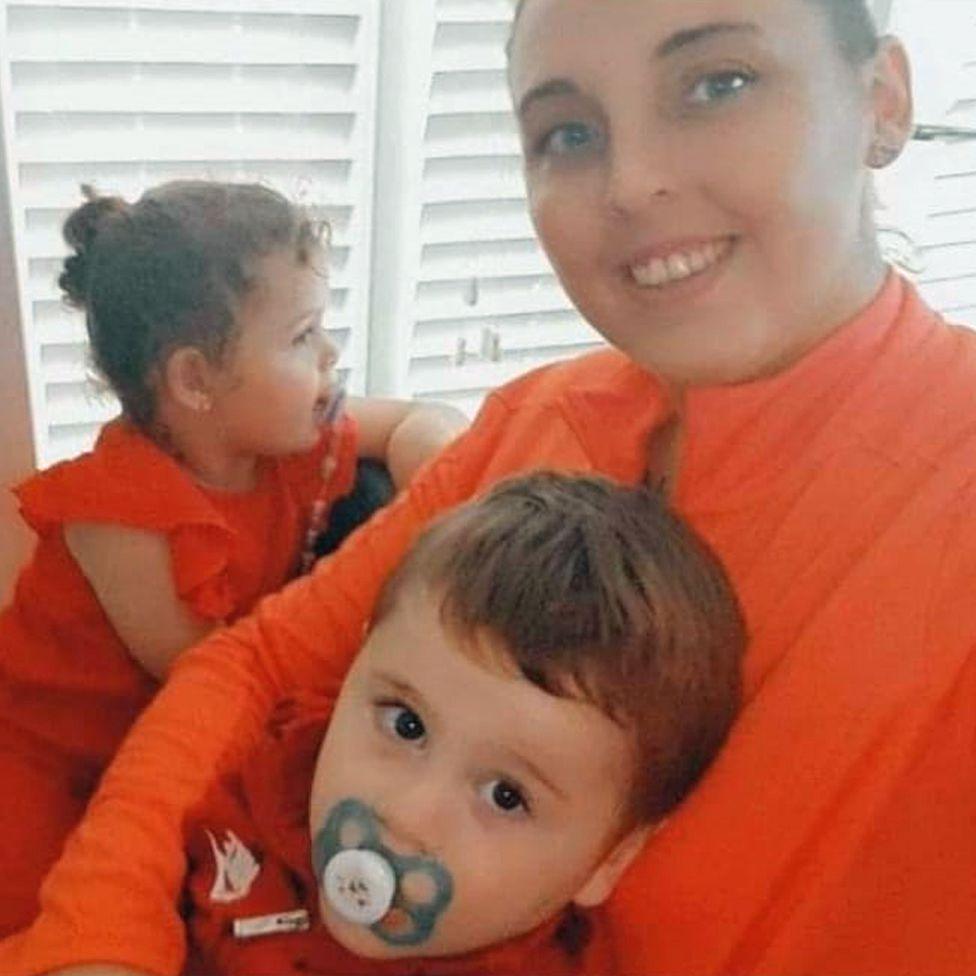No evidence Scotland's poverty policies are working - report

- Published
There is no evidence Scottish government policies to tackle poverty and health inequalities are making any difference, according to a new think tank.
The Scottish Health Equity Research Unit (Sheru) highlighted a “critical gap” in data on the effectiveness of programmes such as the Scottish Child Payment.
The organisation – run by the Fraser of Allander Institute and Strathclyde University’s Centre for Health Policy – said key information was “either missing or not detailed enough to show the real impact” on inequality.
The Scottish government told the BBC it was committed to tackling poverty but did not address the issue of data collection.
Scotland's struggle to tackle poverty while cutting services
- Published4 September 2024
Child poverty in Scotland shows little change
- Published21 March 2024
One in 10 Scots living in 'very deep poverty'
- Published2 October 2023
The 2024 Inequality Landscape report examines trends in public health, including life expectancy, living standards and relative poverty.
Data highlighted by the report includes:
A fall in life expectancy by half a year for both men and women since 2017-19
More people in Scotland are in relative poverty now than they were in the pre-Covid period
Young adults in Scotland are less likely to participate in education, employment, or training than they were pre-pandemic
The report also highlights the higher rates of drug-related death in Scotland than the rest of the UK.
It states that the Scottish government has a “good grasp” of the problems facing deprived communities.
Sheru said the Scottish Child Payment “should significantly reduce child poverty” but added: “We currently have no evidence of this impact reflected in the data.”
The report stated: “There is a worrying lack of emphasis placed on understanding the impact of policies.
“The overall lack of progress with tackling socio-economic and health inequalities indicates that policies are not working in the right way or at the scale required to improve outcomes.”
Emma Congreve, deputy director of the Fraser of Allander Institute, is co-lead of Sheru.
She said: "If the government doesn’t have a clear understanding of which policies are effective, it cannot make informed decisions about which ones to keep and which ones to cut.
“We've already witnessed emergency spending controls being imposed based solely on expediency, rather than evidence.
“We are deeply concerned that future decisions will be made without considering the impact on people's lives and prioritising spend accordingly."
Prof Kat Smith, co-director of the Centre for Health Policy, also contributed to the report.
She added: “In recent years, the Scottish government has made strides in recognising the importance of gathering insights from service users and their experiences.
“However, evidence-based decision-making requires ensuring outcomes can be to tracked in the data, as well as engaging with community members."
‘We would struggle’

Jamieleigh Ford says she spends the Scottish Child Payment on essentials
Single mother Jamieleigh Ford lives in Glasgow with her four-year-old son Liam and three-year-old daughter Leia.
The 26-year-old juggles parenting responsibilities with a part-time job at a care home while studying social service at college.
The family have been claiming the Scottish Child Payment since its introduction, and it now amounts to £200 of extra income each month.
Jamieleigh said they would struggle without the additional money.
“The extra goes towards a lot of essentials and things like furniture,” she said.
“Without it, we would need to cut back and it would be a struggle.
“I think it is a good idea to give extra support to people.”
Social Justice Secretary Shirley-Anne Somerville said the government would continue to take "wide-ranging action" to address the root of inequality.
She said the government had spent £3bn on policies tackling poverty and mitigating the cost of living since 2022-23, and had spent about £1.2bn mitigating "14 years of harmful UK government policies".
She said: “Modelling in February estimated that Scottish government policies will keep 100,000 children out of poverty this year.
"These policies include the ‘game-changing’ Scottish Child Payment, which is not available elsewhere in the UK and which has been widely hailed for its impact by anti-poverty campaigners.
“We will continue to work with our partners to drive improvements in health, tackle poverty, and embed health considerations within wider policy making.”